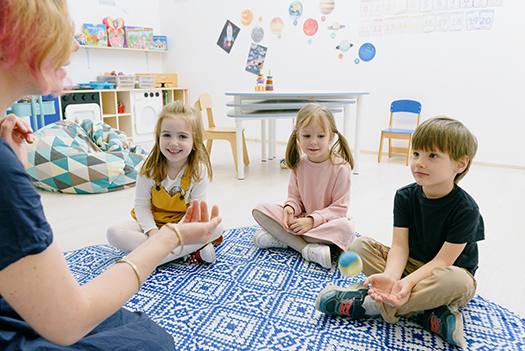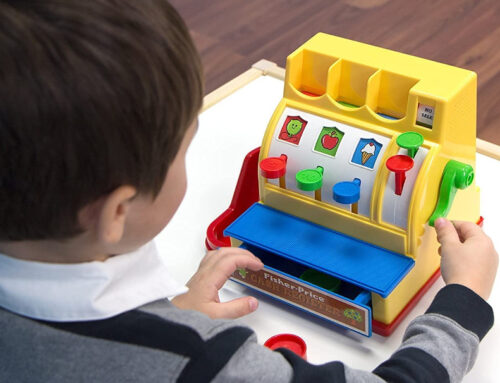Your child’s therapist may recommend a developmental therapist (DT), but what exactly is a developmental therapist? The name developmental therapist is so broad that it can be confusing to understand exactly what they do.
According to the Illinois Developmental Therapy Association (IDTA), developmental therapists “comprehend the developmental importance of the everyday experiences young children have with their caregivers and the influence those relationships have on their ability to broaden their skills in the areas of problem-solving, communication, physical development, self-help, self-control, and relationship building.”
DT’s basically utilize the child’s strengths and weaknesses in all areas of development in order to promote a child’s development as a whole person. DT’s have a background in global development, meaning they have a background in the recognized areas of development, which are cognition, communication, physical, social & emotional, and adaptive-living skills. With that being said, the DT utilizes their knowledge on global development to enhance or support the generalization of skills.
During sessions, the DT utilizes relationship-based, play-based, and naturalistic environments to best integrate and generalize developmental skills to be in a typical developmental order. In Illinois, a DT typically works within the birth to three population; however, this age varies across the state.
Keep reading to find out why a DT is beneficial for a child outside of early intervention and after three years old!

At Blue Bird Day, our developmental therapists work alongside social workers. DT’s are here to enhance team collaboration & communication across disciplines, provide parent education about typical developmental milestones, manage a “preschool”-like program, support typical play skills, and enhance typical developmental skills across individual and peer-oriented settings.
Our DT’s have experience and knowledge treating and supporting play skills, cognitive development, social interactions, behavioral challenges, lack of attention/engagement to tasks or others, and supporting children’s ability to participate while in a group setting. If you notice your child has a lack of typical play skills, attention, or engagement deficit, or requires your help to acknowledge or notice you or a peer, a DT may be good for your child! Ask your therapy team for more individualized information that would best suit your child’s needs!
References: www.illinoisdta.org

Blue Bird Day fosters socialization, sensory regulation, and pre-academic learning in children ages 2-7 years in therapeutic rotations that simulate preschool and kindergarten settings. Our compassionate therapists practice a relationship-based and family-centered approach, provide parent training, and collaborate on goals and individualized intensive treatment plans for your child.
We believe in a collaborative and multi-disciplinary team approach to therapy. A team of occupational therapists, speech-language pathologists, dietitians, developmental therapists, behavioral therapists, physical therapists, and therapeutic assistants are created for each child to ensure child and family are fully supported and the best possible results are achieved.
Options for individualized, group and virtual therapy sessions are available as well.
Want to learn more or you have a specific question? Feel free to connect with us here!



